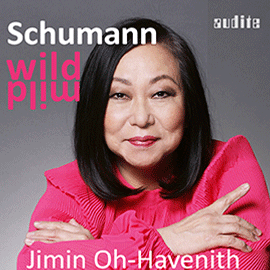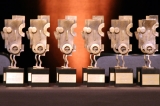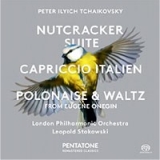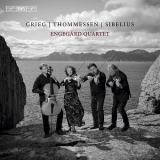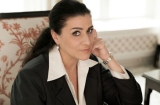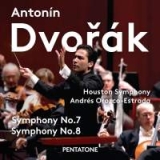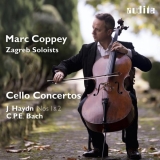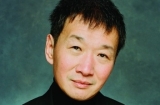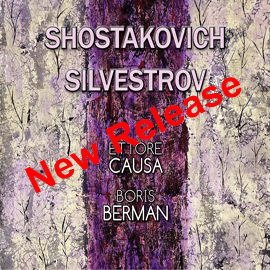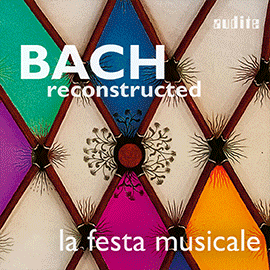Dutch cellist Harriet Krijgh has been appointed Artistic Director Designate of the International Chamber Music Festival Utrecht beginning in summer 2017. After 13 successful festivals the founder Janine Jansen passes the baton to the 24-year-old musician. Read More →
The Gala concert of the International Music Awards 2016 takes place today, 01 April, at the Kursaal in San Sebastian. The event is hosted by the Euskadi Orchestra (Basque National Orchestra) and Donostia 2016. The audience will experience two premieres. It is the first time that ICMA are able to present a world premiere performance, since the Artist of the Year, Christian Lindberg, has written a piece especially for this evening, The Tale of Kundraan. Read More →
Der britische Dirigent Leopold Stokowski war ein Klangtüftler. Was er in dieser 1973 in Quadrophonie gemachten Einspielung der ‘Nussknacker Suite’ macht, ist stupend. Das ist Stokowski-Sound in seiner besten Entfaltung. Und im Surround-Sound ist die Musik, die dieses Detaillieren und Formen (um nicht zu sagen Verformen) durchaus verträgt, ein Ohrkitzler, wie man ihn sich charmanter nicht vorstellen kann. Was hier an instrumentalem Raffinement und Transparenz aus der Musik herausgeholt wird ist einfach genial. Read More →
Das norwegische ‘Engegard Quartett’ spielt auf dieser SACD eine hoch intensive, extrem zupackende Interpretation des Streichquartetts von Edward Grieg. Hier ist Leidenschaftlichkeit als Konzept abgesagt und entsprechend hoch ist die Aufführungstemperatur. Wer das Werk musikantischer, farbiger hören will findet sein Glück in der Einspielung des Auryn Quartetts (cpo 999 729-2). Read More →
Italian mezzo Cecilia Bartoli doesn’t like to board a plane. She told the magazine Gramilano that, whenever possible, she is travelling by train or by sea. To go to New York, the singer took the Queen Elizabeth. She even told the reporter: « When I went to St Petersburg I took a train from Switzerland to Lübeck in Germany, where I boarded an icebreaker which got me there in three days. »
The European contest for percussion solo and low brass instruments (trombone, althorn, baritone, saxhorn, euphonium, tuba) will be organized by Luxembourg’s music association UGDA on Sunday, 13th of November 2016, at the Conservatoire of Luxembourg-City. Six different levels (four in percussion) are proposed to enable beginners as well as advanced soloists to participate in the competition. Contestants aged not over 26 years may enter. Application will be closed on October 10th, 2016. Read More →
An herausragenden Aufnahmen von Dvoraks Symphonien Nr. 7 und 8 mangelt es nicht, und für die Achte bleiben für mich die Einspielungen unter Harnoncourt (wegen des Urmusikantischen) und Karajan (wegen der federnden Spannkraft) die sehr unterschiedlichen Referenzen, und ich werde sie auch nicht wegen des makellosen Surround-Klangs der neuen Orozco-Estrada-Aufnahme eintauschen. Dennoch ist die Interpretation des Kolumbianers ganz beachtlich. Read More →
Kann das gut gehen? Aus so viel Legato kann eigentlich nur musikalische Pampe werden. Zugegeben, ich war zu Beginn skeptisch. Doch schon bald ließ ich mich eines Besseren belehren, ließ ich mich vom Farbenrausch begeistern und fesseln, den Marc Coppeys Cello verströmt. Coppey lässt seinen Bogen geschmeidig gleiten, zieht nie voll durch, macht nie Druck. Das Instrument kann frei atmen und seine schöne Kantabilität voll entfalten. Coppeys Musizieren hat etwas Sinnliches, ein inneres Feuer, das Haydns Musik jenes wunderbare Glimmen verleiht, jenes geheimnisvolle Licht, dem man willig folgt. Read More →
There is more news in the case of the transformations at the Paris Opera Garnier. The management of the opera house wanted to eliminate some separation walls in order to get more seats. Now, because the old separation walls were not stored, but rather destroyed without any authorization, and the transformation work does not fulfill the requirements of historic buildings, the case is finally transferred to the Criminal court. Read More →
In an interview with ‘classicfm’ pianist Melvyn Tan has said something remarkable, which music students should take in consideration. « … another way is to learn how to practise. A lot of students don’t really know how to practise. The way to practise, I think, is to really listen to yourself, but in a very analytical way. So you almost don’t think of the musical emotions in the piece, but you’re thinking of being able to project each note, thinking about why the composer wrote certain sequences of notes. And then you apply it to a much bigger canvas, you apply the colour and then emotions – and that is a long process. »







